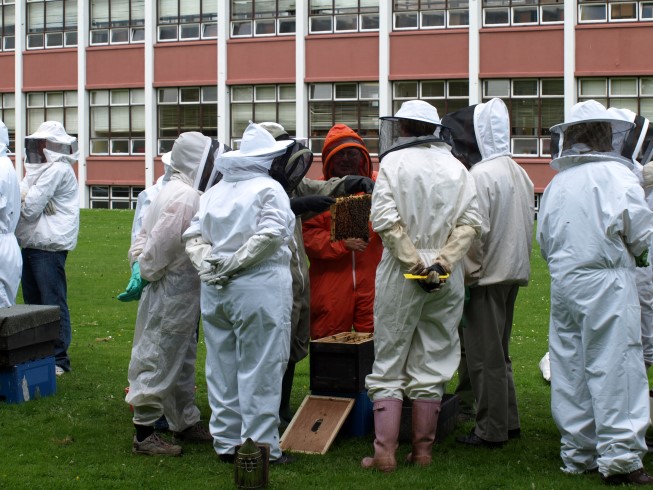Bumblebees are in steep decline in both Europe and North America because of climate change, researchers at the University of Vermont have found.
Researchers at the university examined more than 420,000 historical and current records of many species of bumblebees and found that global warming is impacting bumblebee numbers.
Speaking to the journal Science Leif Richardson, Scientist at the University of Vermont, said that if we don’t stop the decline in the abundance of bumblebees, we may well face higher food prices, diminished varieties and other troubles.
The researchers also found that, in response to the warming temperatures, the bumblebees are shifting to areas of habitat at higher elevations.
“Moving upslope doesn’t necessarily mean they’ve lost area there yet but, eventually, they may simply run out of hill,” Richardson said.
Jeremy Kerr, Biologist at the University of Ottawa who led the study, said that pollinators are vital for food security and our economy, and widespread losses of pollinators due to climate change will diminish both.
“We need to figure out how we can improve the outlook for pollinators at continental scales, but the most important thing we can do is begin to take serious action to reduce the rate of climate change,” he said.
“The scale and pace of these losses are unprecedented,” Kerr said.
There may be an evolutionary explanation for the problems bumblebees now face, researchers said. Many other species of insects originated and diversified in tropical climates; as temperatures warm, their evolutionary history may allow them to better adapt, they said.
Researchers say that with climate change, many species of animals, including butterflies, have been observed to expand their territory, the northern edge of their range marches toward the North Pole, while the southern edge remains in place.
The team of 14 scientists who conducted the new study found that northern populations of many bumblebee species are staying put, while the southern range edge is retreating away from the equator.
“This was a surprise. The bees are losing range on their southern margin and failing to pick up territory at the northern margin, so their habitat range is shrinking,” Richardson said.
Solution
The researchers suggest that a dramatic solution should be considered in response to the problem; move bee populations into new areas where they might persist.
This “assisted migration” idea has been considered, and controversial, in conservation biology circles for more than a decade, but is gaining support as warming continues, researchers say.
“We need new strategies to help these species cope with the effects of human-caused climate change, perhaps assisting them to shift into northern areas,” Kerr said.
But the most important message of this study is “the need to halt or reverse climate warming,” Richardson said.
“These findings could spell trouble for many plants, including some crops, like blueberries, that depend on bumblebees for pollination.
“Bumblebees are crucial to our natural ecosystems,” he said.
